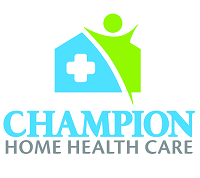The entire experience of having home health care assistance would be vastly improved if both the caregiver and the client would remember two things: to spend time talking to one another about the job at hand and to remember their manners. The human interaction needs to be as positive and productive as possible, and both sides will benefit.
Here are some complaints that I have heard from an elderly client, about her caregiver’s interaction with her. This lady told me, “When the live-in aide first came into my home, she put her suitcase in the middle of my living room and kept it there. She didn’t ask me where I wanted her to put it.” I asked the client if she spoke to the aide about the issue. The woman said, “No, I didn’t. The aide should have known better!” Now, this aide had been on the live-in job for five days straight, and her suitcase was still in the living room. The relationship between the client and the aide had deteriorated to the point of the aide being replaced, presumably by an aide with better manners. The client had other personality-based complaints about this aide. The first bad impression never left the client, and persuaded her to dislike other things about the aide.
At the same time, the aide was also having a miserable on-the-job experience. She was ready to quit even before the client decided to fire her. The aide was so anxious to leave that she assisted the client in telephoning a different home health care agency to secure a replacement live-in aide. (Which is how I came to meet this client.) The aide complained that no matter what she did to help the client, she could never please the client. She cited an example of making breakfast for the client. The client was displeased that the aide did not first set the table, before the client sat down for breakfast. The client expected the aide to do this automatically, without being instructed.
Both this client and this aide could have gotten off on the right foot with one another by sitting down together, at the very beginning, and having a nice long chat about the client’s expectations and the aide’s job duties. In big companies, they call this “orientation for new personnel.” In home health care, it’s simple and honest communication, combined with good manners and respect for one another.
Please Submit Comments using the ‘Contact Form’ and Reference this ‘Post’
